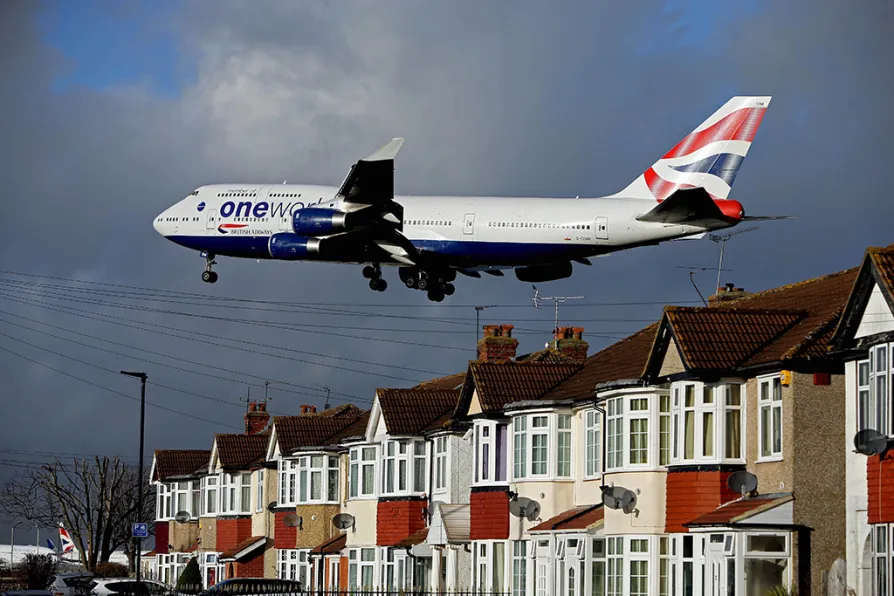Durham Miners’ Association general secretary ALAN MARDGHUM speaks to Ben Chacko ahead of Gala Day 2025

 British Airways is among giant firms attacking its staff
British Airways is among giant firms attacking its staff
WITH the tsunami of job losses we predicted when Rishi Sunak announced the phasing-out of the furlough scheme now coming to pass, the government’s reversion to type with a reliance on a failed “free market” demonstrates a complete failure to accept the role of state intervention to mitigate the impact of the crisis.
And their inability to deliver, in any sense of the word, an industrial strategy that puts working people, our families and communities first, or supports core industrial sectors central to economic recovery, is a gross betrayal of national responsibility.
We must take immediate measures to both protect jobs and instil confidence in sectors bearing the brunt of an unprecedented set of circumstances.
It makes no economic or political sense for government to only intervene with limited support for working people as they lose their jobs. Now is the time to be brave and radical with state intervention, investment and corporate diversification into new areas of work — turning our national resources, people, materials, plant and equipment, experience and knowledge to building the things we need for a greener, cleaner economy.
This also means intervention in the labour market, both with rights to end gross exploitation, but also in the distribution of work and the economic benefits from it.
Instead, we’ve got a government devoid of fresh thinking, ideas or imagination, whose latest response to the biggest slump on record is that job losses are inevitable.
This is why Unite is working with economists to identify the true economic and social costs of mass unemployment versus flexing furlough arrangements to enable altered working patterns to keep people in employment. Current short-time working protections in Germany and France, alongside sector-specific packages of support, have saved millions of jobs and been extended for 24 months to assist struggling sectors.
Among the measures we’ve proposed are exemptions from income tax and national insurance for workers on an agreed 50 per cent reduction in hours, where the sole purpose is to protect jobs and retain skills. This would mean them keeping their gross pay at around 75 per cent of their earnings.
After all, workers forced into unemployment won’t be paying taxes either, and will also be claiming benefits. Saving jobs instead by enabling the sharing of work between us until demand returns and production volumes increase is a fair and collective national response to an unprecedented situation.
And putting to proper use the billions held by the Treasury from the apprenticeship levy — currently retained more as a tax than a fund to be used to upskill and retrain workers — would not only protect jobs but help address the chronic skills crisis too, ensuring we’re prepared for both a return in demand and to meet the technological challenges of the future.
Our stewards and officers are in the fight of their lives to protect jobs and terms and conditions in the face of the pandemic and government failure.
The industrial argument for short-time working, job share and a permanently reduced working week is strengthening and we’re working to reach negotiated agreements with employers that will both retain employment for our members and the long-term viability of businesses.
Winning the battle of ideas with our members over new models of working is vital to not just addressing the temporary impact of Covid-19, but to the longer term challenges of automation and the digitalisation of work. And where employers are simply using the current situation to opportunistically attack our union, jobs and negotiated agreements, we have to generate the confidence in our organised membership to fight back industrially.
While we never give up the struggle for intervention from government, we can no more outsource our responsibility for the industrial fight to them than we can to lawyers or others providing supportive external actions, as welcome as these are.
These are tactics in a strategy, not a strategy on their own. It’s working people, confident, united and well organised, being prepared to take effective and direct industrial action, that will shift the centre ground.
We are the custodians of the jobs we inherited. They were won, defended and improved by those who came before us and we owe it to coming generations to protect them. Yes, the world of work is changing, it always has, but it’s our responsibility to ensure that change doesn’t simply serve the rich corporations that can afford to bring it about.
If we’re to ensure that working people and communities are at the heart of a just transition and we all receive our fair share of our common wealth, we have to stand up now. Fighting for our jobs today is as much about preparing ourselves for the challenges ahead as it is about avoiding the immediate and devastating impact of mass unemployment.
Showing leadership and respect for coming generations and organising and inspiring working people to meet this challenge and lead the fight is essential if we’re to secure that fairer, more equal, greener world we aspire to. It’s the single biggest responsibility of our movement and one we ignore at our eternal peril.
Steve Turner is assistant general secretary of Unite, responsible for the union’s manufacturing sector, retired members and Unite’s community membership.


















